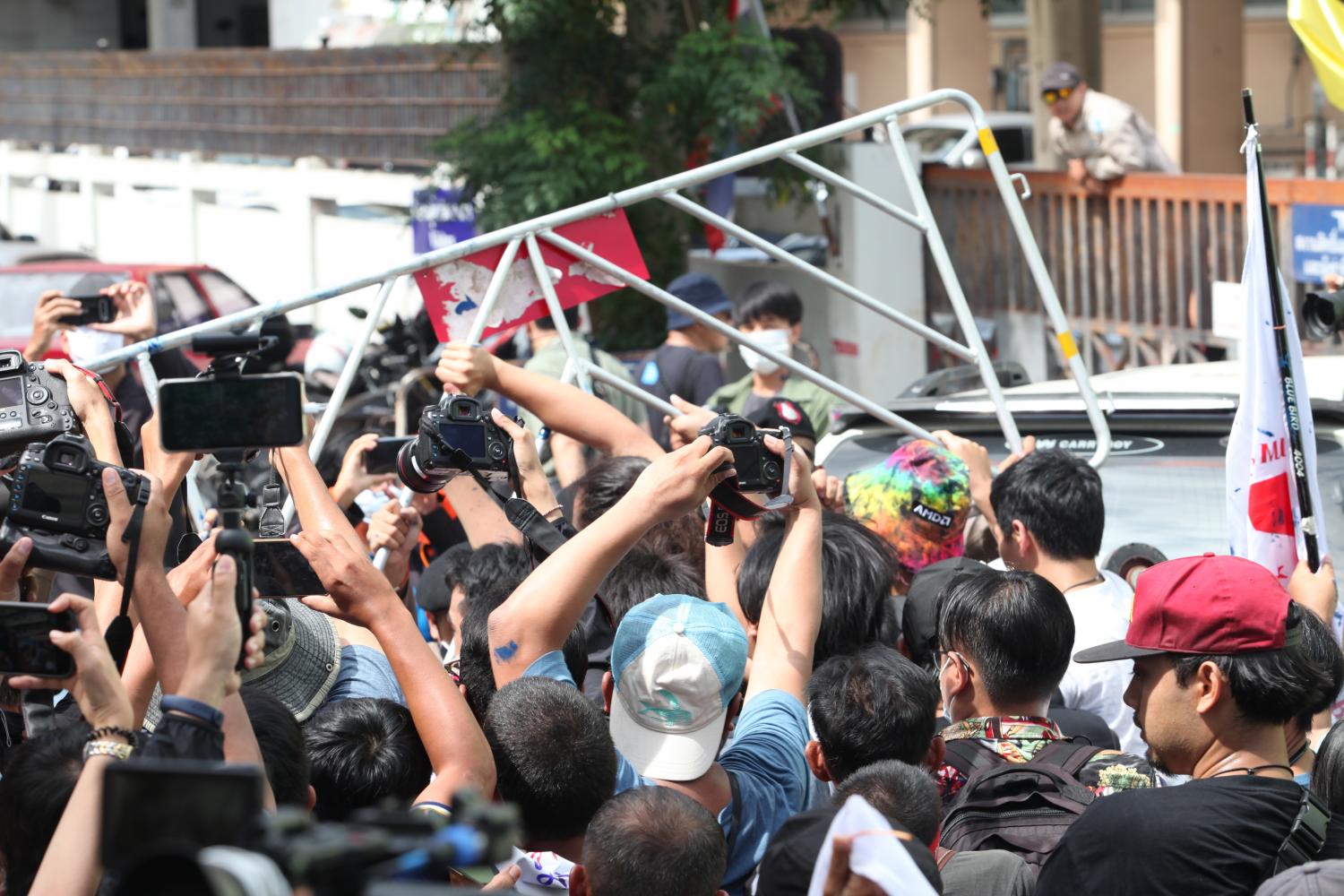
The throwing of blue paint by Bottom Blues Band lead singer Chaiamorn Kaewwiboonpan at a police officer during an anti-establishment rally in front of Samran Rat police station on Friday is definitely not a form of "paint as protest", a symbolic public act listed in The Politics of Nonviolent Action by Gene Sharp.
The claim the singer made -- that the paint throwing was an artistic act of retaliation against the police for "painting" protesters as the bad guys -- appears to be a distortion of the "paint as protest" concept.
The same can be said about anti-government activist Sombat Boonngam-anong's claim the police officer's uniform was "tainted". After the blue paint was splashed on the officer, Mr Sombat offered him 5,000 baht for it because the uniform now had "artistic value".
These commotions took place on Friday as anti-government activists charged with taking part in a July 18 rally gathered at the station to acknowledge the indictments. Their supporters broke police barriers as the singer threw the paint.
Whether or not paint throwing is classified as a non-violent act depends on the results of the act. As former national human rights commissioner Angkhana Neelapaichit asked: "What if the paint got into the eyes [of the police officer]?"
Ms Angkhana disapproved of Chaiamorn's act and demanded clarification over the action from leaders of the pro-democracy movement.
Luckily, the officer was not hurt. However, Chaiamorn is likely to face legal consequences.
Ms Angkhana said people who believe in peaceful struggle must be tolerant, and they tend to resort to dialogue to settle a conflict. Similar voices have been raised by people with good intentions who do not want to see the country's political divide explode into a violent confrontation.
But it appears words of wisdom have fallen on deaf ears of young protesters who are rejecting anything associated with the establishment, be it on cultural, political, educational or social issues.
The protest leaders and their cheerleaders all claim to champion democracy and free expression, and there is nothing wrong with that; supporting democracy and freedom is praiseworthy, but free expression must go both ways.
Freedom of speech is why I am free to air my viewpoints just as you are with yours. There must be no harassment or witch-hunting of those who think differently.
So, is it hypocrisy that elements of the anti-establishment groups resort to social media to heap scorn on celebrities who criticised their protests? These groups have either urged employers to fire the celebrities or have their sponsors stop funding their TV programmes.
These celebrities are not the policemen threatening protest leaders with arrest on an array of charges, ranging from sedition, blocking traffic and illegal public assembly. The celebrities were merely expressing their political opinions, except for the case of Ornapa "Ma" Krisadee, the TV personality who was forced to quit for making an outburst of profanity as she lashed out at the students. She also called them "demon kids".
Freedom of expression is not unique to a particular group -- all groups in society, regardless of their political affiliation, ideology, or belief have the right guaranteed. We may not see eye to eye but does not mean we are enemies of each other.
The future is likely to be tough for the younger generation, be it economically, socially or environmentally. Jobs will be harder to find as many will be taken over by robots. Climate change will bring about environmental disruptions the older generations may never see.
Young people have the right to a better future, which this government has failed to deliver after six years in office, in the absence of badly-needed bureaucratic and political reforms. Students can make noise, but they are not strong enough to materialise change without the support of the people.
To win the people's support, and that of older generations in particular, students must stop harassing their detractors, be more open-minded and tread maturely. They must bear in mind that they cannot get everything they want. When it comes to more sensitive issues, they may have to be more patient and wait. The future will be in the hands of the newer generations -- not the old.
Veera Prateepchaikul is former editor, Bangkok Post.
